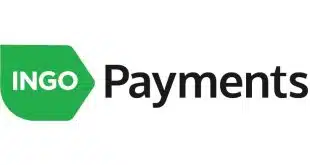It’s well known that Alphabet Inc.’s Google unit wants to offer consumers checking accounts, though that service has yet to launch. But the search-engine giant also reportedly is developing a debit card that would work in concert with its Google Pay mobile-payments service, according to news reports from Silicon Valley.
The prospective card was first disclosed over the weekend by the TechCrunch online news publication, which claimed to have received leaked images of the product. The card would have physical and virtual versions and could position Google Pay as more of a full-service payment option akin to the way the Apple Card, a Mastercard credit card issued by Goldman Sachs Group, supports Apple Inc.’s Apple Pay mobile-payment service.
Prospective issuers of the Visa-branded EMV debit card, according to TechCrunch, would be Citigroup Inc. and Stanford Federal Credit Union, the same financial institutions working with Google on the checking account.
TechCrunch suggested the virtual card would use Bluetooth technology to communicate with a point-of-sale terminal when the cardholder uses a smart phone with Google Pay for in-store purchases. If that proves to be true, it would mark a major change in Google’s payment provisioning technology since Google Pay currently uses a variant of near-field communication called host card emulation.
A spokesperson for Mountain View, Calif.-based Google confirmed the issuer partners but did not answer other questions from Digital Transactions News about card details.

“We’re exploring how we can partner with banks and credit unions in the U.S. to offer smart checking accounts through Google Pay, helping their customers benefit from useful insights and budgeting tools, while keeping their money in an FDIC- or NCUA-insured account,” the spokesperson says in a statement. “Our lead partners today are Citi and Stanford Federal Credit Union, and we look forward to sharing more details in the coming months.”
Google introduced a Mastercard prepaid card linked to Google Pay’s predecessor, Google Wallet, back in 2013 but discontinued it in 2016.
Google has concluded it must ramp up its presence in physical payments and financial services, according to payments researcher Patricia Hewitt, principal at PG Research & Advisory Services LLC in Savannah, Ga.
“Google has figured out they’ve to get a card out into the market,” Hewitt says. “That’s a must-have for them. So many transactions still take place in the physical space.”
That holds true even if the issuer partners share little of their interchange revenue from card transactions with Google, she says, adding, “The core strategy is to make Google a centralizing agent in people’s lives.”
But with Google revealing little about its prospective card, debit analyst Sarah Grotta of Mercator Advisory Group Inc. isn’t overly impressed by what she’s seen so far. “At the end of the day, what appears to be different about this card is the Google brand and marketing,” Grotta, director of the Debit and Alternative Products Advisory Service at Marlborough, Mass.-based Mercator, tells Digital Transactions News by email.
“From the initial reports, it looks like the Google debit card will track transactions, provide budgeting information, [and] it appears to have card controls and offers contactless capabilities,” she says. “Many prepaid cards offer those functions and most bank accounts do too. I am not convinced that a nice user interface is enough of a differentiation to lay a foundation or create a jumping off point for entering the financial-services industry, including services like investment advice.”
—With additional reporting by John Stewart





